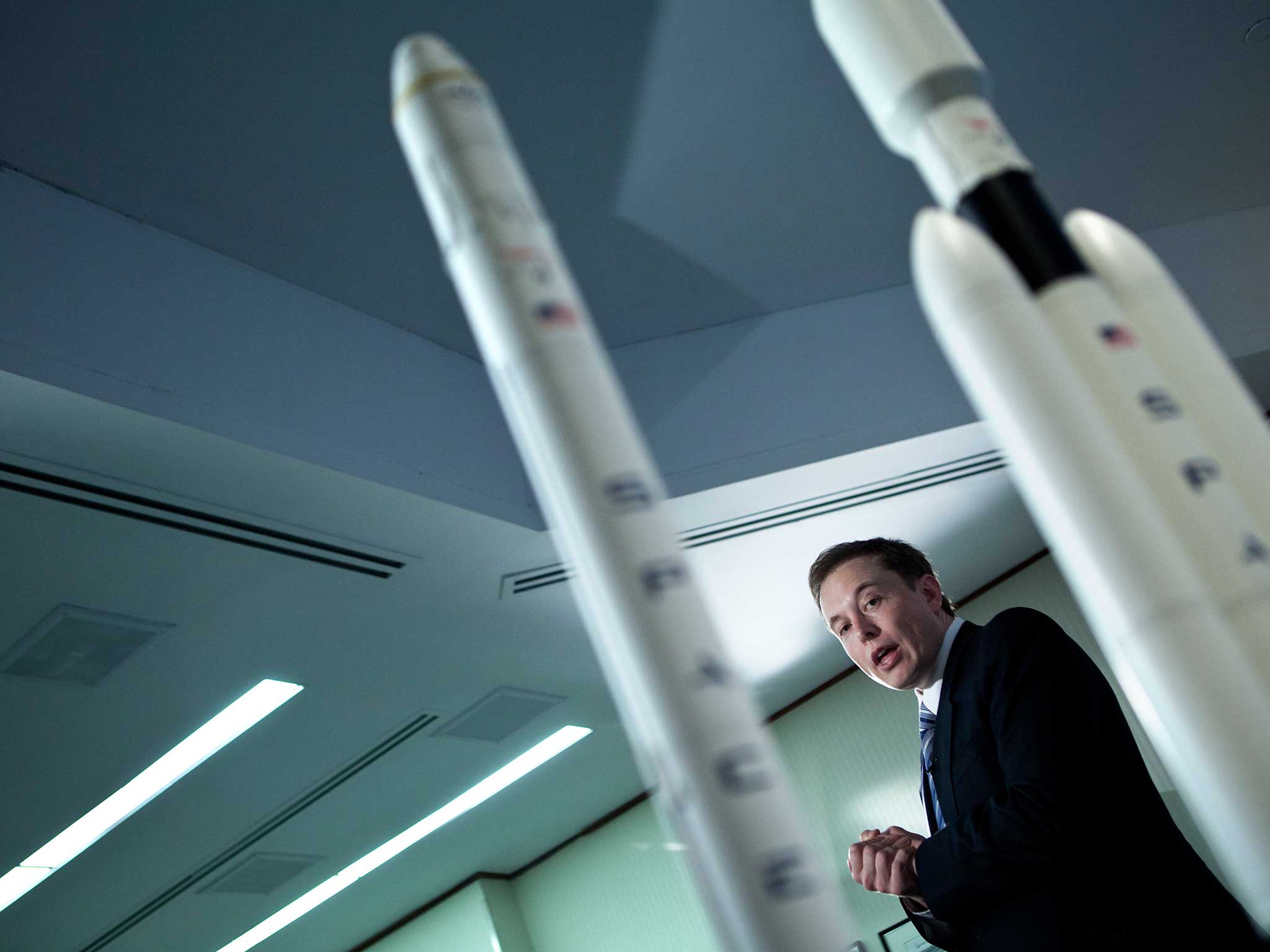Elon Musk confirms SpaceX is working on a constellation of micro-satellites, promises unveiling in 'two to three months'
Mini-satellites beaming internet coverage across the world could be Musk's next big space venture after running supply missions to the ISS

Your support helps us to tell the story
From reproductive rights to climate change to Big Tech, The Independent is on the ground when the story is developing. Whether it's investigating the financials of Elon Musk's pro-Trump PAC or producing our latest documentary, 'The A Word', which shines a light on the American women fighting for reproductive rights, we know how important it is to parse out the facts from the messaging.
At such a critical moment in US history, we need reporters on the ground. Your donation allows us to keep sending journalists to speak to both sides of the story.
The Independent is trusted by Americans across the entire political spectrum. And unlike many other quality news outlets, we choose not to lock Americans out of our reporting and analysis with paywalls. We believe quality journalism should be available to everyone, paid for by those who can afford it.
Your support makes all the difference.Billionaire PayPal-founder and future-tech pin-up Elon Musk has confirmed that his private aerospace company SpaceX is currently developing “advanced micro-satellites” capable of operating in “large formations”.
Musk tweeted that the technology was going to be officially unveiled in two to three months’ time following a report in the Wall Street Journal on Musk’s work with industry veteran Greg Wyler.
Wyler, a former Google executive and founder of WorldVu Satellites, has previously planned to launch a constellation of 360 110kg satellites by 2020 to offer broadband internet access to “hundreds of millions of potential users”.
The WSJ reported that he is currently in talks with Musk to create a much larger constellation, ten times the size of the current largest fleet with some 700 individual satellites.
However, the pair is likely to be hamstrung by a number of problems both technical and legislative, and the WSJ points out that one indication of the size of the challenge is that Wyler had previously tried to work with Google on a similar plan before apparently giving up and leaving the company.
The interest in satellite constellations in recent years has been fuelled by falling costs for both launching and building the satellites, and it’s not just broadband that these fleets are supplying: Californian startup Skybox Imaging has been successfully beaming back real-time video from its satellites since 2013, and was purchased by Google in June this year.
Join our commenting forum
Join thought-provoking conversations, follow other Independent readers and see their replies
Comments